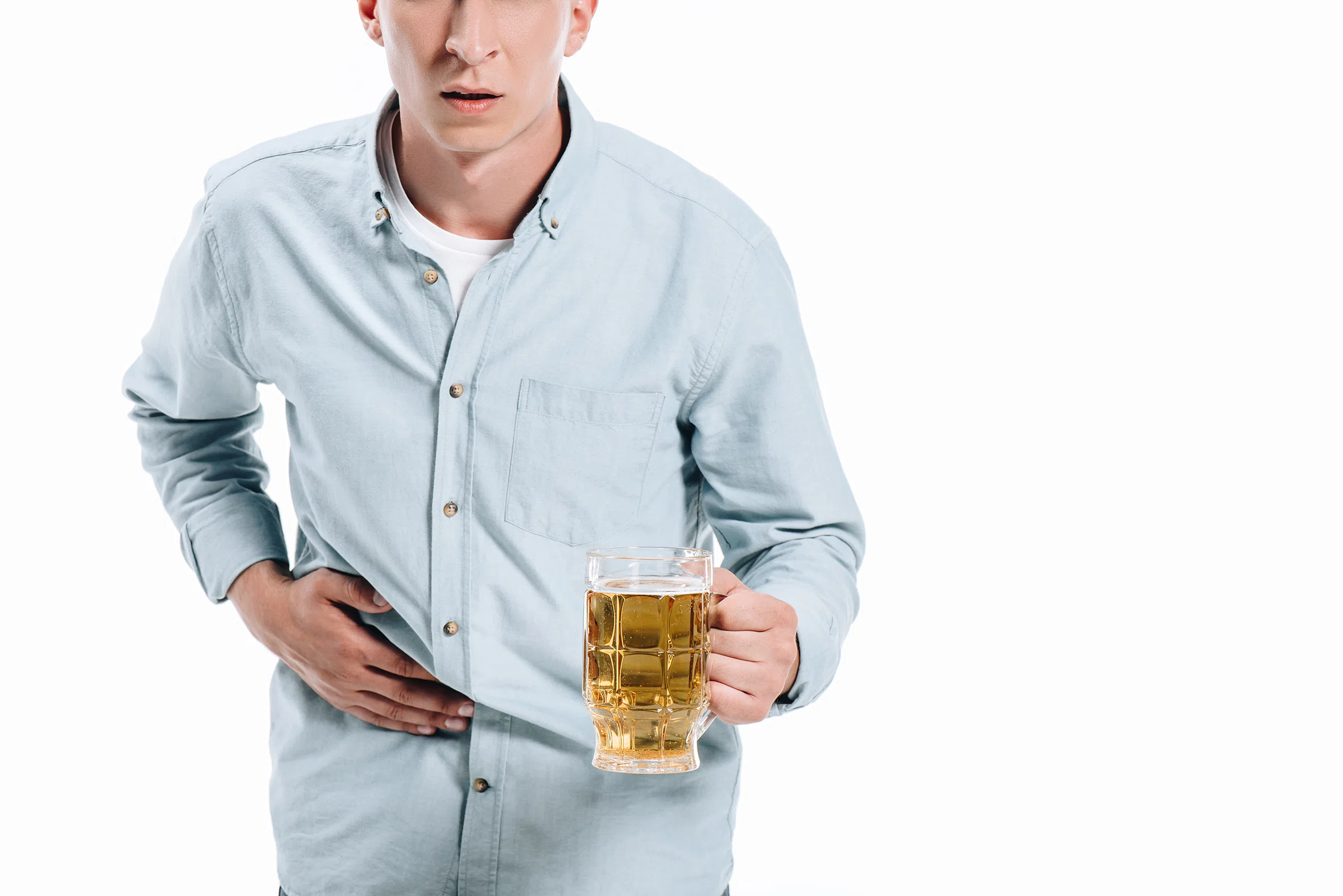Written by Dr. Brandon Rieders, Gastroenterologist
Whether it’s a glass of wine with dinner or a night out with friends, many people notice the same unpleasant result afterward: bloating. Alcohol is often a silent culprit behind digestive discomfort, but the way it affects your gut is more complex than just carbonation or sugar. Let’s break down how alcohol impacts your GI system—and what you can do to reduce the bloating that follows.
Does Alcohol Cause Bloating? How It Affects Your Digestion
1. Alcohol Slows Digestion
Alcohol relaxes the muscles in the gastrointestinal tract—including the lower esophageal sphincter and intestinal walls. This can lead to delayed gastric emptying (a condition known as gastroparesis), resulting in feelings of fullness, pressure, and gas. A study published in Alimentary Pharmacology & Therapeutics found that moderate to high alcohol intake can significantly slow gut motility, especially in the stomach and small intestine.
2. It Can Cause Inflammation in the Gut
Alcohol is an irritant to the mucosal lining of the GI tract. Even small amounts can increase intestinal permeability (also known as “leaky gut”), allowing toxins and bacteria to pass into the bloodstream. This immune activation can trigger bloating, discomfort, and gas production.
3. Fermentation and Gas Production
Alcoholic beverages—especially beer, wine, and sweet cocktails—often contain sugars, yeast, and carbonation. These ingredients can ferment in the gut, producing excess gas. If your digestive system is already sensitive, this effect is amplified.
4. Alcohol Disrupts Enzyme Activity
The pancreas plays a key role in digestion, releasing enzymes that help break down fat, carbs, and protein. Alcohol can impair pancreatic enzyme secretion, leading to incomplete digestion and a heavier, bloated feeling after drinking.
5. Dehydration and Water Retention
Ironically, alcohol dehydrates your body while making you retain water. This imbalance can cause puffiness in the face, limbs, and abdomen. Dehydration also slows digestion and contributes to constipation—another cause of bloating.
Does Alcohol Cause Bloating? Tips to Reduce Discomfort While Drinking
- Drink in Moderation: Limit intake to avoid overwhelming your gut.
- Choose Smarter Drinks: Opt for dry wine, spirits with soda water, or low-sugar cocktails to reduce fermentation potential.
- Hydrate Before, During, and After: Water helps flush your system and support digestion.
- Don’t Drink on an Empty Stomach: Eating first can help buffer alcohol’s effects on the gut lining.
- Support Digestion With Happitum™: Our supplement combines digestive enzymes, ginger, peppermint, and fennel to help ease post-drinking discomfort. Happitum™ promotes smoother digestion and helps reduce bloating naturally—even after a glass (or two).
When to Be Concerned
Occasional bloating after alcohol is common, but if you notice persistent symptoms—especially pain, diarrhea, or changes in bowel habits—it’s time to speak with a doctor. These may be signs of alcohol-related GI inflammation or other conditions that require evaluation.
References
- Bujanda, L. (2000). “The effects of alcohol consumption on the gastrointestinal tract.” American Journal of Gastroenterology, 95(12), 3374–3382.
- Keshavarzian, A., et al. (1994). “Alcohol and the gastrointestinal tract.” Alimentary Pharmacology & Therapeutics, 8(5), 551–561.
- Wang, Y., et al. (2012). “Moderate alcohol consumption slows gastric emptying and impairs insulin response.” Journal of Clinical Endocrinology & Metabolism, 97(6), E1100–E1106.
- Leclercq, S., et al. (2014). “Role of intestinal permeability and inflammation in the onset of alcohol-related disorders.” Alcohol and Alcoholism, 49(2), 140–144.
- Di Ciaula, A., et al. (2017). “Gut microbiota and motility disorders: From bench to bedside.” Neurogastroenterology & Motility, 29(3), e12956.



